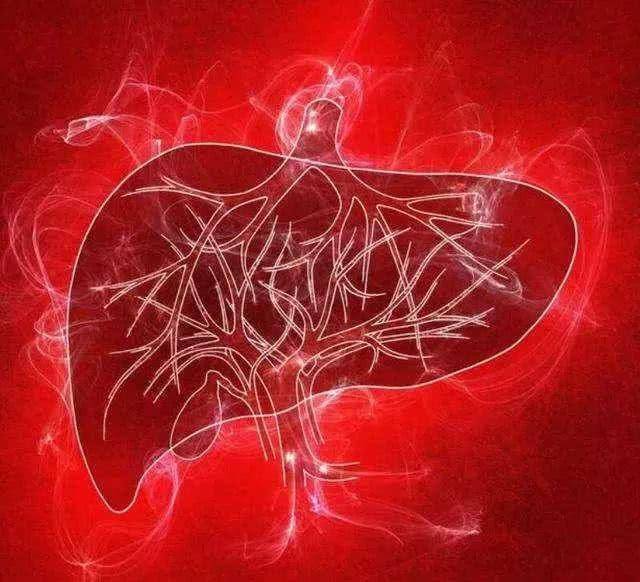Hepatic depression is a common syndrome in traditional Chinese medicine, commonly caused by emotional depression or mental stimulation, leading to inhibition of liver excretion function, thereby causing obstruction of liver meridian qi circulation. In addition, it can also be caused by hepatitis virus invading the liver.
The main manifestations of hepatic depression are emotional depression, irritability, as well as lower abdominal, chest and breast pain, headache, neck lumps, and changes in the menstrual cycle and breast lesions in women.
In traditional Chinese medicine, the liver is considered innate in women, hence hepatic depression is more common in females, and due to the close relationship between the liver and spleen, hepatic depression can affect the spleen and stomach, leading to abnormal digestive function, resulting in decreased appetite, bloating, belching, and loose stools.
This type of syndrome is most common in the following diseases:
1. Stomach pain
Clinical presentation: epigastric pain extending to both sides, worsened by emotional distress, sighing, loss of appetite, poor sleep, thin white tongue coating, wiry pulse.
2. Abdominal distension
Clinical presentation: epigastric discomfort, bloating, extending to both sides, relief with belching, irritability, exacerbated by emotional factors, thin white tongue coating, wiry pulse.
3. Hiccup and nausea
Clinical presentation: continuous hiccups, chest and flank distension, intestinal rumbling gas, difficulty breathing, nausea, belching, abdominal fullness and reduced appetite, thin greasy tongue coating, wiry slippery pulse.
4. Abdominal pain
Clinical presentation: abdominal pain, discomfort, wandering pain, often involving the lower abdomen, aggravated by emotional distress, white thin tongue coating, wiry pulse.
5. Constipation
Clinical presentation: dry and difficult defecation, abdominal distension, chest and flank fullness, belching, reduced appetite, intestinal rumbling gas, difficulty passing stool, thin white or yellow tongue coating, wiry pulse.
6. Rib pain
Clinical presentation: rib pain, wandering, location varies, exacerbated or relieved by emotional disturbances, chest tightness, epigastric fullness, decreased appetite, frequent sighing, thin tongue coating, wiry pulse.
7. Mass accumulation
Clinical presentation: abdominal gas accumulation, soft lump formation, wandering distension pain, intermittent accumulation and dispersion, epigastric and rib distension and discomfort, often triggered by emotional factors.
8. Depression syndrome
Clinical presentation: mental depression, restlessness, rib pain, location varies, epigastric fullness and discomfort, loss of appetite, sighing, irregular defecation, menstrual irregularities in women, pale red tongue, thin greasy coating, wiry pulse.
9. Goiter disease
Clinical presentation: enlargement of the neck due to soft non-painful lumps on both sides of the thyroid gland, feeling of neck swelling, chest tightness, sighing, or wandering rib pain, symptoms fluctuate with emotional stress, thin white tongue coating, wiry pulse.
Hepatic depression and qi stagnation pose significant risks to patients’ lives and bodies, so how should hepatic depression and qi stagnation be regulated?
Next, I will introduce some methods to regulate hepatic depression and qi stagnation:
1. Eat less fatty and greasy foods, sweet foods
For hepatic depression and qi stagnation, you can take herbal medicines like Xiaoyao San or Chaihu Shugan San, eat less fatty and greasy foods, sweet foods to maintain good digestion, and more importantly, develop good lifestyle habits and healthy living.
Pay attention to social interactions in life, do not isolate yourself. Find your hobbies and strengths, go out more. Maintain a regular life, stay cheerful.
2. Quit smoking, limit alcohol, avoid sweet, fatty, spicy foods
Eat more foods that clear the liver and relieve heat in moderation, such as bitter gourd, bitter vegetables, tomatoes, mung beans, bean sprouts, celery, cabbage, pak choi, shepherd’s purse, mustard greens, loquat, green plum, hawthorn, citrus fruits, and the like.
3. Increase social contact
By interacting with others, you can release negative emotions, prevent excessive emotional suppression, and restore mental balance.
4. Get more involved in activities
Various activities such as playing ball, hiking, running, walking, Tai Chi, etc., can help smooth qi circulation, promote blood flow, resolve or release negative emotions, and keep your mood happy.
5. Scientifically arrange your diet
Elderly people with hepatic depression and qi stagnation can consume more liver-soothing and qi-regulating foods, and Wushun tea is a good choice.
I’m also drinking Wushun tea myself, and many people have given positive feedback! If you need it, click here:
“Like, Share” is a form of encouragement!
If anyone has questions, feel free to leave a comment in the comment section!


